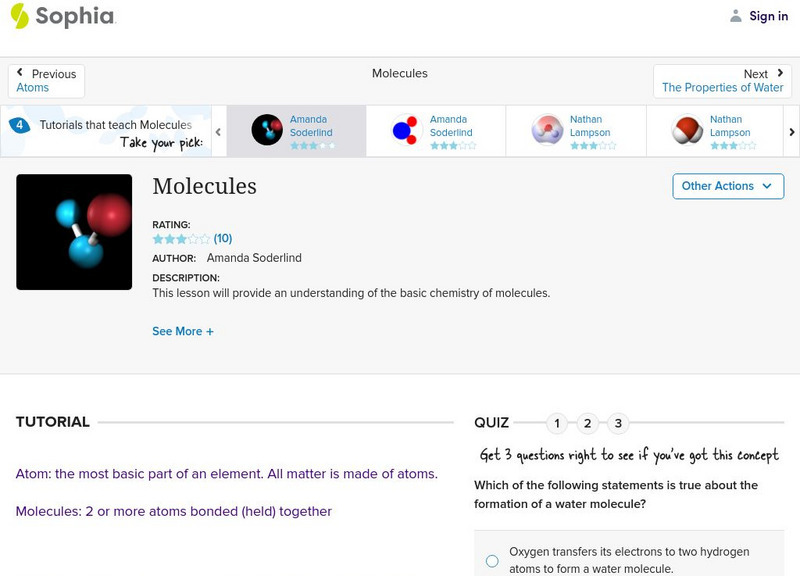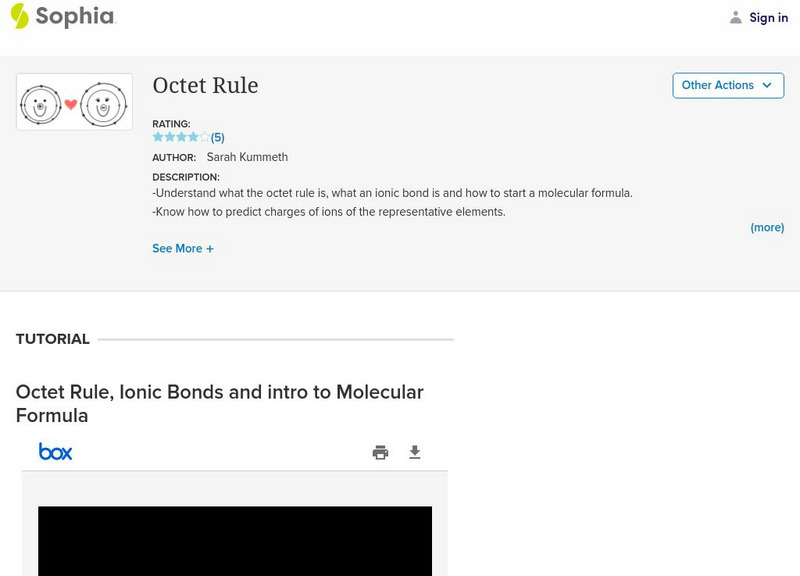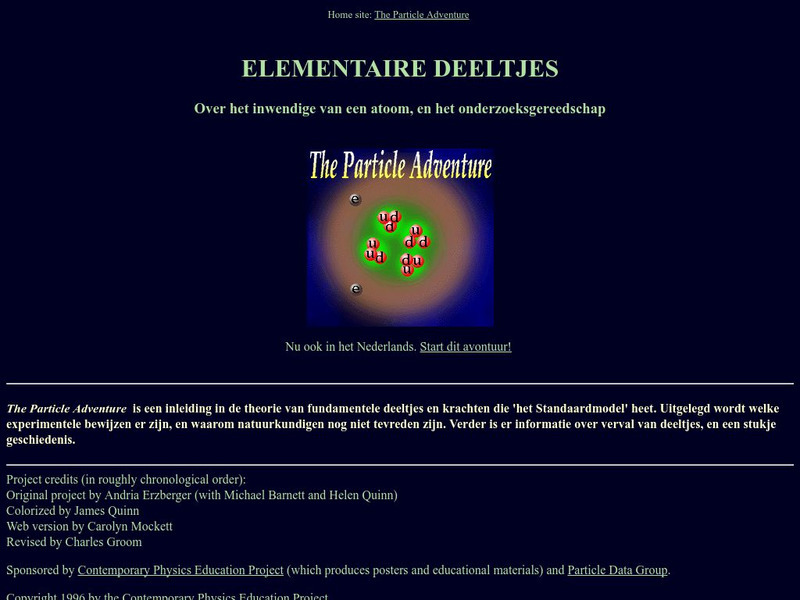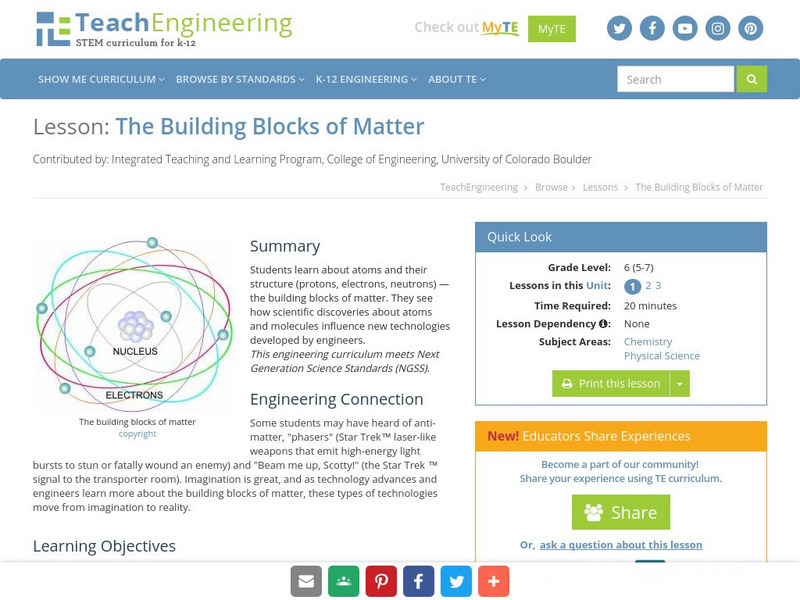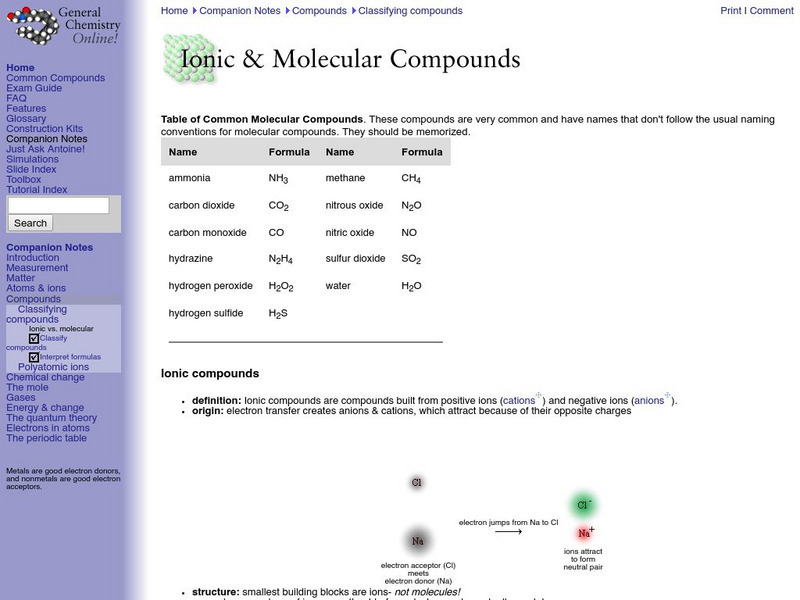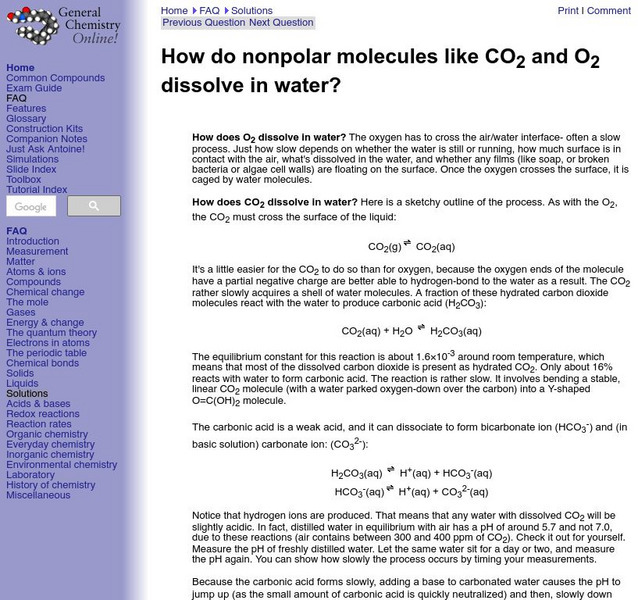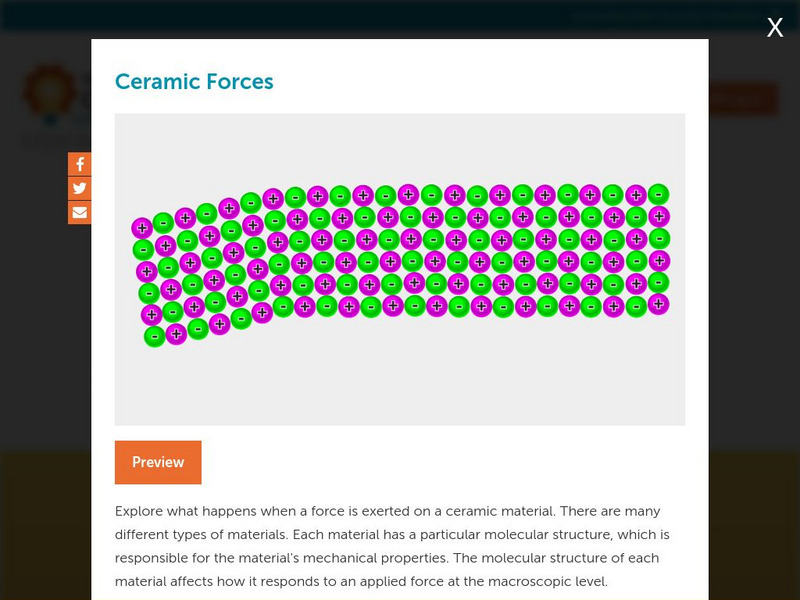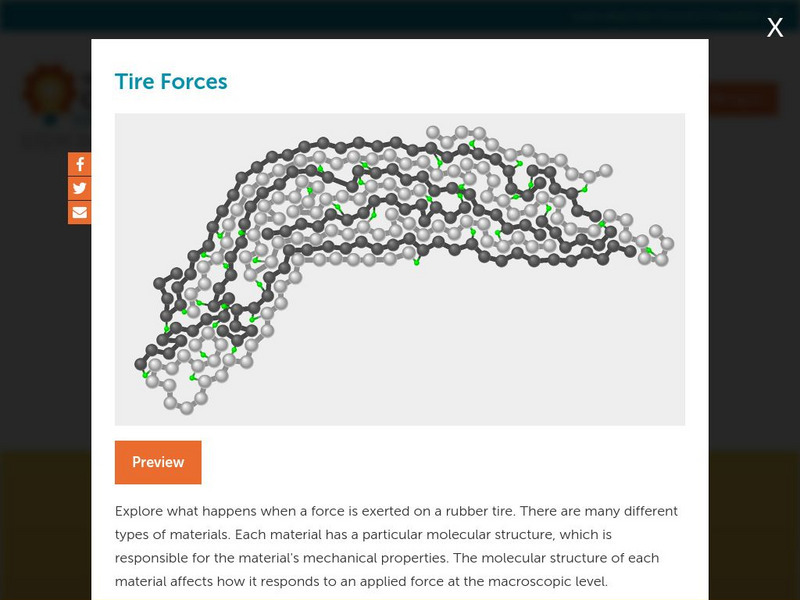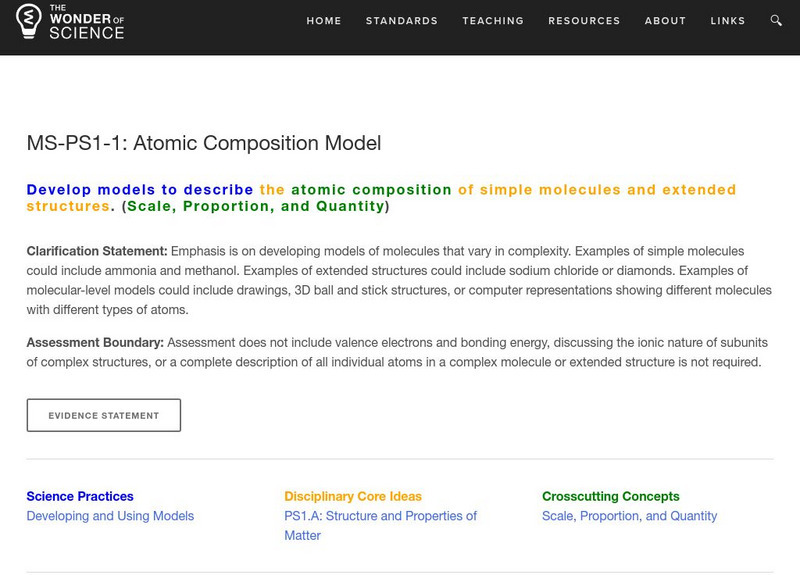CK-12 Foundation
Ck 12: Physical Science: Compounds
[Free Registration/Login may be required to access all resource tools.] Explores compounds and their properties, the elements that form them, and their structure.
CK-12 Foundation
Ck 12: Physical Science: Compounds
[Free Registration/Login may be required to access all resource tools.] Investigates compounds and their properties, the elements that form them, and their structure.
Sophia Learning
Sophia: Characteristics of Matter
Find out the basic characteristics and main properties of all matter.
Sophia Learning
Sophia: Converting From Particles to Moles
A guided slide show presentation illustrating how to convert from particles to moles.
Sophia Learning
Sophia: Molecules
An audio podcast accompanied by a diagram of a water molecule helps the learner understand molecular structure. [0:23]
Sophia Learning
Sophia: Octet Rule
Learn about the octet rule and ionic bonds in this slide show presentation. Then find out how to start a molecular formula.
Other
Particle Adventure Dutch Version
Dutch version of the well-known "Particle Adventure" physics website that teaches students about atoms, mass, particle physics, and quantum physics. The site discusses theories related to physics and provides other links related to the...
Museum of Science
The Atom's Family: Mighty Molecules
In this activity, students construct models of molecules using marshmallows and gum drops.
TeachEngineering
Teach Engineering: The Fundamental Building Blocks of Matter
This lesson plan explores the fundamentals of atoms and their structure. The building blocks of matter (protons, electrons, neutrons) are covered in detail. Students think about how atoms and molecules can influence new technologies...
Other
Beautiful Chemistry: Molecular Structures
These models show the structures of some basic molecules such as water and carbon dioxide, then move on to show more complex molecular strautures.
Frostburg State University
General Chemistry Online: Ionic and Molecular Compounds
Provides a good outline of the concepts involved in ionic and covalent bonding, with links to definition of terms. Features a list of common molecular compounds and a chart that compares ionic and molecular compounds.
Frostburg State University
University of Frostburg: How Nonpolar Molecules Dissolve
This site from the University of Frostburg provides an explanation of the process by which nonpolar molecules dissolve in water.
Concord Consortium
Concord Consortium: Ceramic Forces
Explore what happens when a force is exerted on a ceramic material. The molecular structure of the material affects how it responds to an applied force at the macroscopic level.
Concord Consortium
Concord Consortium: Plastic Forces
Explore what happens when a force is exerted on a polymeric plastic material. The molecular structure of a material affects how it responds to an applied force at the macroscopic level.
Concord Consortium
Concord Consortium: Tire Forces
Explore what happens when a force is exerted on a rubber tire. The molecular structure of each material affects how it responds to an applied force at the macroscopic level.
The Wonder of Science
The Wonder of Science: Ms Ps1 1: Atomic Composition Model
A collection of lesson plans for helping students understand atomic composition. Site uses work samples, phenomena, assessment templates, and videos to plan lessons to describe the atomic composition of simple molecules.
Concord Consortium
Concord Consortium: Nonbonding
Bring two molecules together and observe potential energy changes.
Concord Consortium
Concord Consortium: Oil and Water
Mix polar and nonpolar molecules together and observe changes in potential energy.
Concord Consortium
Concord Consortium: Elements and Polarity
Explore how polarity affects molecular shape and charge.
Concord Consortium
Concord Consortium: Forming an Molecular Bond (Conceptual Version)
Create a molecular bond and observe energy over time.
CK-12 Foundation
Ck 12: Life Science: 2.1 Elements and Compounds
Learn how basic elements form molecules to support life.
University of California
Cog Web: Can Matter Store Active Information?
This site provides a timeline of historical events in regards to discovery and research on genetics.
Simon Fraser University
Chem1 Virtual Textbook: Molecular Collision
The General Chemistry Virtual Textbook, or Chem 1, is broken into several sections covering various aspects of topics related to chemistry. This section seeks to answer the question, how far does a molecule travel between collisions?






